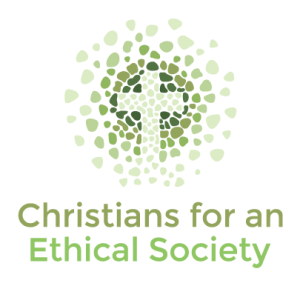16 February 2017: “Seeking our Moral Compass”, Fr Peter L’Estrange
- Audio recordings:
- Welcome: Rev. Dr. Thowald Lorenzen, President CES
- Introduction: Rt Rev’d Professor Stephen Pickard
- Father L’Estrange’s address
- Question 1: Underpayment and other new forms of slavery and where in an on-line world can we look to for guidance?
- Question 2: We’ve moved from a world of what is right to one of what works.
- Question 3: The arbiter of what is private and what public morality.
- Question 4: Why is the church heard on some issues and why it is absent on others?
- Question 5: Disjunction between rich Catholic Social Teaching and Catholic Support for Trump?
- Question 6: Displacement of Liberal Arts Education By Subjects Of Quantification.
- Question 7: If I begin again is it freedom or habit?
- Question 8: Responding graciously to the God within each of us.
- Final remarks and thanks: Rt Rev’d Profesor Stephen Pickard
19 April 2017: “The Politics of Love”, Andrew Leigh MP
- Copy of address
- Audio recordings:
- Full recording
- Welcome: Emeritus Prof. Ingrid Moses
- Call for questions: Emeritus Prof. Ingrid Moses
- Question 1: How do we nudge or economic system to foster ultruism and generosity?
- Question 2: Incompatability of growth in inequality with a politics of love.
- Question 3: Are trading, ownership and authority incompatible with maximization of wellbeing?
- Question 4: Capacity to adjust trade to minimize inequalty and trade as a means of specialisation.
- Question 5: How to get cross party consensus in a polarized political system?
- Question 6: How to advocate for Diversity & Inequality without that advocacy intensifying the problem?
- Question 7: Are you having success in working with colleagues to bring about a groundswell of change?
- Question 8: How to apply the politics of love in dealing with proposals to move agencies from Canberra?
- Question 9: On whom does blame lie for the success in many democracies of the politics of fear, slogans and hate?
- Question 10: How do you explain the irony of the correlation between inequality and lack of empathy?
- Question 11: Parliamentary Vote to exercise War power?
- Question 12: Incompatibility of Politics of Love with Bipartisan Refugee Policy.
- Question 13: Detention of Refugees on Manus & Nauru as a sacrifice to prevent others drowning.
- Comment: Emeritus Prof. Ingrid Moses
- Final remarks and thanks: Rt Rev’d Profesor Stephen Pickard, Executive Director, Australian Centre for Christianity and Culture
3 May 2017: Defiant earth: The fate of humans in the Anthropocene, Clive Hamilton
17 August 2017: “The Getting of Wisdom – a Private Faith, a Public Christian”, Kristina Keneally (Annual dinner forum)
- Audio recordings:
- Welcome: Bishop George Browning, CES Chairman
- Address: Kristina Keneally
- Initial comments: Bishop George Browning
- Question 1: Hobbling of NSW ICAC – corruption
- Question 2: Why in conscience vote did you say you did so on the basis of your faith?
- Question 3: Which would you expect to come first: married or female priests in the Catholic Church?
- Question 4: Withdrawal of services from the Church is fine as a protest but where do you move them to?
- Question 5: What advice would you give to young women thinking of taking up politics?
- Vote of thanks: Rt Rev’d Professor Stephen Pickard, Executive Director, ACC&C
- Concluding comments: Bishop George Browning
18 October 2017: “Everyone’s Business: Developing an inclusive and sustainable economy”, Joint Forum with the Catholic Social Justice Commission, on their Social Justice Statement. Keynote speaker: Fr Frank Brennan SJ
- Audio recordings:
- Introduction: Mike Cassidy ,Archdiocesan Social Justice Commission Canberra & Goulburn
- Introduction: Dr Helen Watchirs OAM, ACT Human Rights Commissioner
- Address: Fr Frank Brennan SJ
- Question 1: Doubling the waiting period for new start allowance from 13 to 26 weeks for those with liquid assets of $18,000 for singles and $36,000 for couples
- Question 2: Taking on neoliberalism and influencing politicians
- Question 3: Why don’t welfare groups campaign against growing inequality?
- Question 4: A fair return should be secured for finite mineral assets which belong to the nation
- Question 5: Neoliberalism encourages efficiency and encourages exploitation of talents
- Question 6: Calling out the need for sustainability and inclusiveness.
- Question 7: Australia should have a sovereign wealth fund like the Norwegians.
- Question 8: Mutual exchange and capacity building providing a bridge out of poverty?
- Question 9: Alternatives to mainstream economics as ways out of poverty.
- Comments and thanks: Dr Helen Watchirs OAM, ACT Human Rights Commissioner
15 November 2017: “Diversity and Harmony: Peace and Justice in the 21st Century” – A Muslim-Christian Conversation
- Audio recordings:
- Introduction: Rt Rev’d Profession Stephen Pickard, Executive Director ACC&C
- Opening Address: Saba Awan
- Opening Address: Dylan Mordike
- Opening Address: Shan Gunawardena
- Opening Address: Katherine Rainger
- Opening Address: Omar Hashmi
- Opening Address: Richard Browning
- Question 1: Reflections on Remarks of others and Symbols that were presented
- Question 2: Particularly meaningful religious practices
- Question 3: Any challenges in Christian forums/2017/Muslim-audio/Muslim dialogue? Same Sex Marriage
- Question 4: Portrayal of religion in media
- Question 5: Why haven’t the great religions stood up to the market?
- Conclusion: Rt Rev’d Prof Stephen Pickard
- Conclusion: Bishop George Browning

